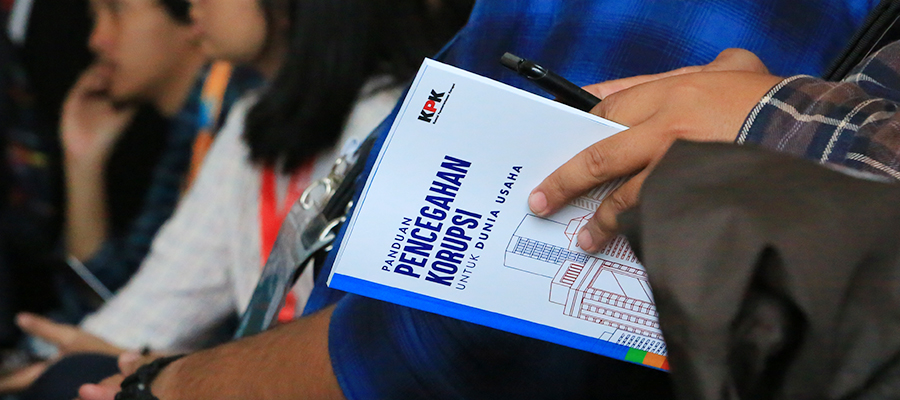Corruption as a crime has been regulated since the country’s gained independence, through Emergency Law No. 17/1951 on Goods Accumulation and Emergency Law No. 7/1955 on Economic Crime.
Later on, the government regulated corporation penalty, passing at least 11 legal products--nine regulations, one Attorney General’s Decree, and one Supreme Court Decree.
Why does corporation penalty must be regulated? The Corruption Eradication Commission (KPK) recorded that nearly 70 percent of the cases it handled involved businesses, public officials and legislators. Regarding case type, almost 80 percent of corruption cases related to bribery and procurement. These show significant involvement of corporation in corruption crime.
“Since 2004, KPK has dragged 238 people from private sectors to court. They are the second biggest perpetrators of corruption in Indonesia,” said KPK Deputy Chair Saut Situmorang, during a meeting to disseminate information on corruption prevention guidelines for businesses. Held at the Anti-Corruption Learning Center (9/4) in Jakarta, the event was attended by 100 business people from financial and health sectors.
To close the loophole in corporation, Saut said, KPK and the Indonesian Chamber of Commerce and Industry (KADIN), along with governance experts and practitioners, have created the book Corruption Prevention Guidelines for Business Sector. It is a 55-page manual that serves as minimum guidelines for corporations to set up internal mechanism to prevent corruption and build compliance.
Adopting the concept and good practices at the national and international levels, the books conveys corruption prevention steps that are quite simple and practical, so that they can be adapted according to corporation size and capacity.
The book uses PDCA approach or Plan, Do, Check, and Action, and includes stages of response to make the cycle sustainable. The concept of corruption prevention in this book emphasizes on CEO commitment as the determining factor in the success of prevention corruption. The commitment will decide the direction of the prevention efforts. The next factors will be planning, implementation process, evaluation and improvement, as well as stages of response and corruption prevention efforts implementation.
KPK urged every company to follow the guidelines in the book and immediately establish internal control system to keep the actions of internal parties from going toward corruptive behaviors.
“It is important to prevent fraud and corruption potential in private sector,” Saut said.
KPK will promote the book to other sectors, including food, infrastructure, oil and gas, logistics and transportation, and telecommunication. It is KPK’s attempt to support the National Strategy on Corruption Prevention (Stranas PK), especially to improve licensing and trade system, as well as state finance.
Below is the list of regulations on corporation penalty:
- Law No. 5/1999 on Prohibition Against Monopolistic Practice and Unfair Business Competition
- Law No. 8/1999 on Consumer’s Protection
- Law No. 31/1999 juncto Law No. 20/2001 on Corruption Crime Eradication
- Law No. 31/2004 on Fisheries
- Law No. 32/2009 on Environmental Protection and Management
- Law No. 8/2010 on Money Laundering Prevention and Eradication
- Law No. 7/2014 on Trade
- Law No. 38/2014 on Plantation
- Law No. 7/2016 on Protection and Empowerment of Fishermen and Fisherwomen, Fish Farmers, and Salt Farmers
- Attorney General’s Decree No. PER-028/A/JA/10/2014 on Guidelines to Handle Corporation Crime
- Supreme Court Decree No. 13/2016 on Mechanism to Handle Corporate Crime
Download the book Corruption Prevention Guidelines for Business Sector
(Public Relations Bureau)


